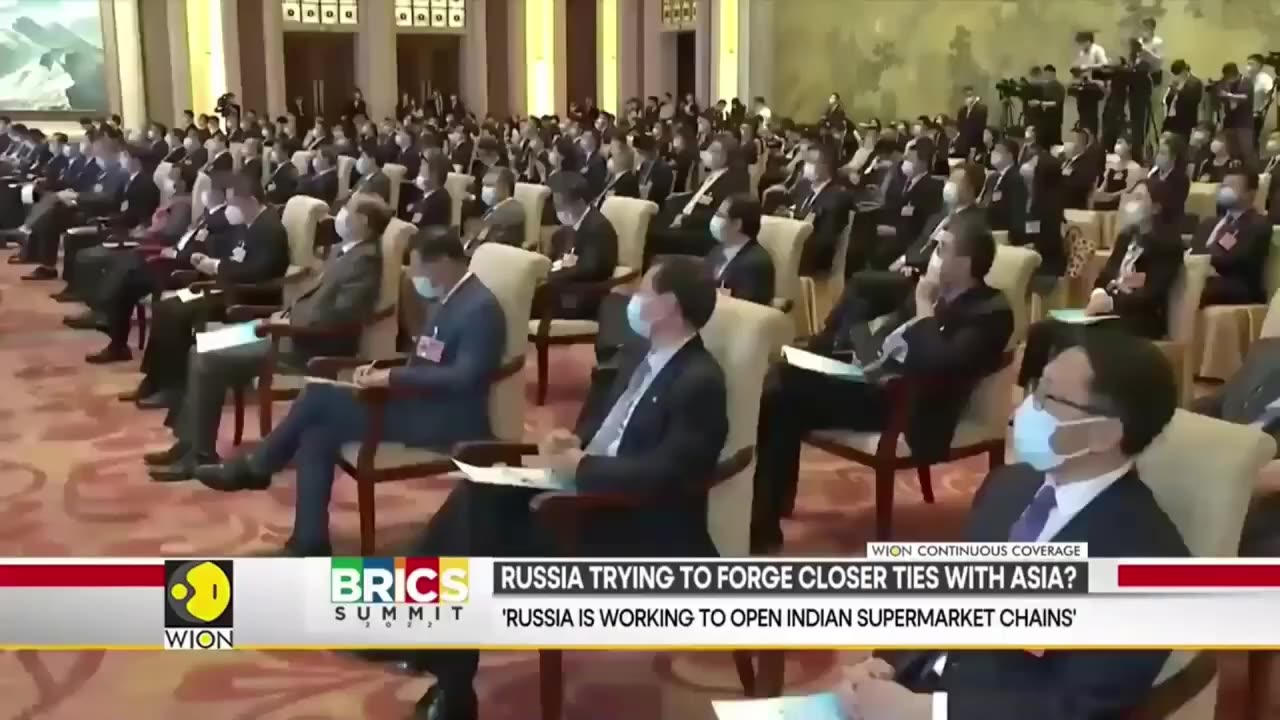Premium Only Content

BRICS has Alternate Payment System that dedollarizes the economy. Read more.✓>>👇
In the early 2010s, Russia was heavily reliant on the SWIFT payment system for its international financial transactions. But with the imposition of economic sanctions by Western countries in response to Russia's annexation of Crimea, there was growing concern within the Russian government about the country's dependence on SWIFT.
As a result, the government began exploring alternative payment systems that would reduce Russia's exposure to SWIFT and the US dollar, which was the dominant currency used in international transactions. After much research and development, a new alternative payment system was born - one that would transform the way Russia did business on the global stage.
The new system, which came to be known as the "dedollarization" system, was designed to allow Russian businesses and individuals to conduct international transactions in multiple currencies, including the Russian ruble, euro, and Chinese yuan. This gave Russia greater flexibility and control over its international financial transactions, reducing its dependence on the US dollar and SWIFT.
The system was launched in the summer of 2019, with great fanfare and high hopes. And it didn't disappoint. Almost immediately, Russian businesses and individuals began using the system to conduct international transactions with other countries, including China and the European Union.
One of the most significant advantages of the dedollarization system was that it allowed Russian businesses to avoid the fees and charges associated with using SWIFT. This gave Russian businesses a competitive edge over their foreign counterparts, making them more attractive partners for international trade.
Another significant advantage of the dedollarization system was that it allowed Russian businesses to avoid the sanctions imposed by Western countries. By using alternative currencies such as the ruble, euro, and yuan, Russian businesses were able to bypass the restrictions placed on them by Western sanctions, allowing them to continue to do business with other countries.
The success of the dedollarization system was not without its challenges, however. One of the most significant challenges was the need to build trust and confidence among international partners who were accustomed to using SWIFT and the US dollar. To overcome this challenge, the Russian government launched a public relations campaign to promote the benefits of the dedollarization system and to reassure international partners that it was a safe and reliable alternative to SWIFT.
Despite these challenges, the dedollarization system continued to gain momentum, with more and more Russian businesses and individuals embracing it as a viable alternative to SWIFT. By the end of 2021, it was estimated that more than 30% of all international transactions involving Russia were conducted through the dedollarization system, making it a significant player in the global financial market.
Looking to the future, the dedollarization system is poised to continue its growth and expansion, with plans to incorporate more currencies and to expand its reach to more countries. With the success of the dedollarization system, Russia has demonstrated that it is possible to create alternative payment systems that can reduce dependence on SWIFT and the US dollar, offering greater flexibility and control to businesses and individuals around the world.
In conclusion, the creation of the dedollarization system has been a game-changer for the Russian economy, offering greater independence and flexibility in the global financial market. By reducing dependence on SWIFT and the US dollar, Russia has been able to bypass the restrictions imposed by Western sanctions and to promote its own interests on the global stage. As the dedollarization system continues to grow and evolve, it is likely to have a significant impact on the global financial landscape, offering a viable alternative to SWIFT and the US dollar for businesses and individuals around the world.
-
 27:09
27:09
MYLUNCHBREAK CHANNEL PAGE
1 day agoDilmun: Where Life Never Ends
91.5K54 -
 2:58:32
2:58:32
Slightly Offensive
17 hours ago $94.92 earnedHas Trump FAILED US? The ABSOLUTE STATE of The Right Wing | Guest: Nick Fuentes
136K186 -
 1:37:05
1:37:05
AlaskanBallistics
12 hours ago $3.29 earnedI Love This Gun PodCast #16
47K4 -
 2:59:26
2:59:26
Twins Pod
21 hours agoEMERGENCY PODCAST WITH ANDREW TATE! - Twins Pod - Special Episode - Andrew Tate
202K218 -
 2:52:01
2:52:01
Jewels Jones Live ®
2 days agoTRUMP SECURES BORDER | A Political Rendezvous - Ep. 113
107K38 -
 25:02
25:02
marcushouse
1 day ago $48.26 earnedStarship Just Exploded 💥 What Went Wrong This Time?!
206K133 -
 12:00
12:00
Silver Dragons
1 day agoBullion Dealer Reveals Best Silver to Buy With $1,000
131K12 -
 12:58
12:58
NinjaGamblers
1 day ago $16.51 earnedIs This The BEST Way to Win At Roulette? 😲
163K19 -
 1:01:54
1:01:54
CharLee Simons Presents Do Not Talk
3 days agoCALIFORNIA'S DONE!
112K43 -
 7:33
7:33
MudandMunitions
1 day agoUnboxing My FIRST Revolver! Smith & Wesson 442 .38 Special and What’s Coming Next for the Channel
137K17